Civil rights activists John Carlos and Tommie Smith spent Feb. 8 on the campus of Oklahoma Christian University sharing the stories and motives behind their silent defiance at the 1968 Olympics in Mexico City.
“Racism is real, and racism is wrong,” Oklahoma Christian President John deSteiguer said “That’s why we need to know the stories of History Speaks. Our guests’ boldness and bravery inspired some and angered others. But without a doubt, our guests changed the world,”.
While on campus, Carlos and Smith shared their stories of overcoming and perseverance at a press conference, a luncheon and the sold-out History Speaks event in Hardeman Auditorium, where they spoke and answered questions from the audience.
“I’m proud to go to a university that seeks out diversity to give their students and community the opportunity to learn from history and those who have lived it,” sophomore Morgan DeLong said.
Carlos and Smith both ran the 200-meter race in the 1968 Mexico City Olympics. Carlos took the victory stand to receive a bronze medal, while Smith earned the gold. When the United States National Anthem began to play, Carlos and Smith silently bowed their hand and raised a fist in the air: a gesture that shook the world.
“A lot people looked at this as a black power move, like it was to scare people,” Smith said. “It was a humanitarian movement. Our whole platform was about human rights. I left the victory stand with the thought in mind that this was a beacon for society.”
To begin their journey down the road to equality, Carlos and Smith, along with other athletes with the Olympic Project for Human Rights, went around the country giving speeches to encourage athletes.
“You must have faith in your takeoff platform,” Smith said. “I had to reveal a negative silence to make a positive statement.”
The Olympic Project for Human Rights in 1987 planned to boycott the Mexico City Olympics in 1968. However, the athletes who were to compete in the Olympics met in Denver and agreed to go to Mexico and compete.
“We didn’t have the right to tell any of them to boycott,” Carlos said. “If we didn’t go, someone else would have made the victory stand. But would they have represented society the same way we did? It was important to make it to the victory stand to make that statement.”
According to the speakers, following the Olympic games, Carlos and Smith received death threats and had to endure all forms of mistreatment. However, despite common confusion, Carlos and Smith were not stripped of their medals.
“It cost me and my family a lot,” Smith said. “Not being able find a job was just the beginning. There was a constant fear of being shot at and of my family’s harm.”
While speaking about his road to the Olympics, Carlos said that he always told his father he was going to be the first black swimmer to represent the United States in the Olympics. Because of the influence of his parents, Carlos said he made the statement so the world would be a better place for his kids.
“The sacrifice was not for ourselves,” Carlos said. “We had our kids in mind. If we can’t make it a better world in our life and time, we would hope we could do something to make change for our kids to have a better life and time.”
Carlos and Smith said they followed the ideology of Martin Luther King Jr. when making their decision on how to make a statement to society.
“Our statement was necessary for our time and for future generations,” Carlos said. “We followed the rule of Dr. King. Although, we were frustrated we wanted to make a powerful statement that was everlasting and non-violent. We wanted to be pungent enough to penetrate to the far ends of the earth.”
Carlos said athletes today do not share the same understanding of the importance of standing up and standing out.
“We have just a few certain athletes, in the last five years, that make statements that are outside the box and relative to social issues,” Carlos said. “If these athletes don’t realize who they are and how influential they can be to these kids; then what role are they playing.”
In 2007, Smith published his autobiography Silent Gesture. In 2011, John Carlos published his book The John Carlos Story: The Sports Moment That Changed the World.
“A lot of people look at me and put me on a plateau like I’m somebody special because I went to the Olympics and made a statement,” Smith said. “I think all of the trials and tribulations in my life, many people go through the same. I felt it was time to put my thoughts and my feelings and emotions in a book for others to read.”

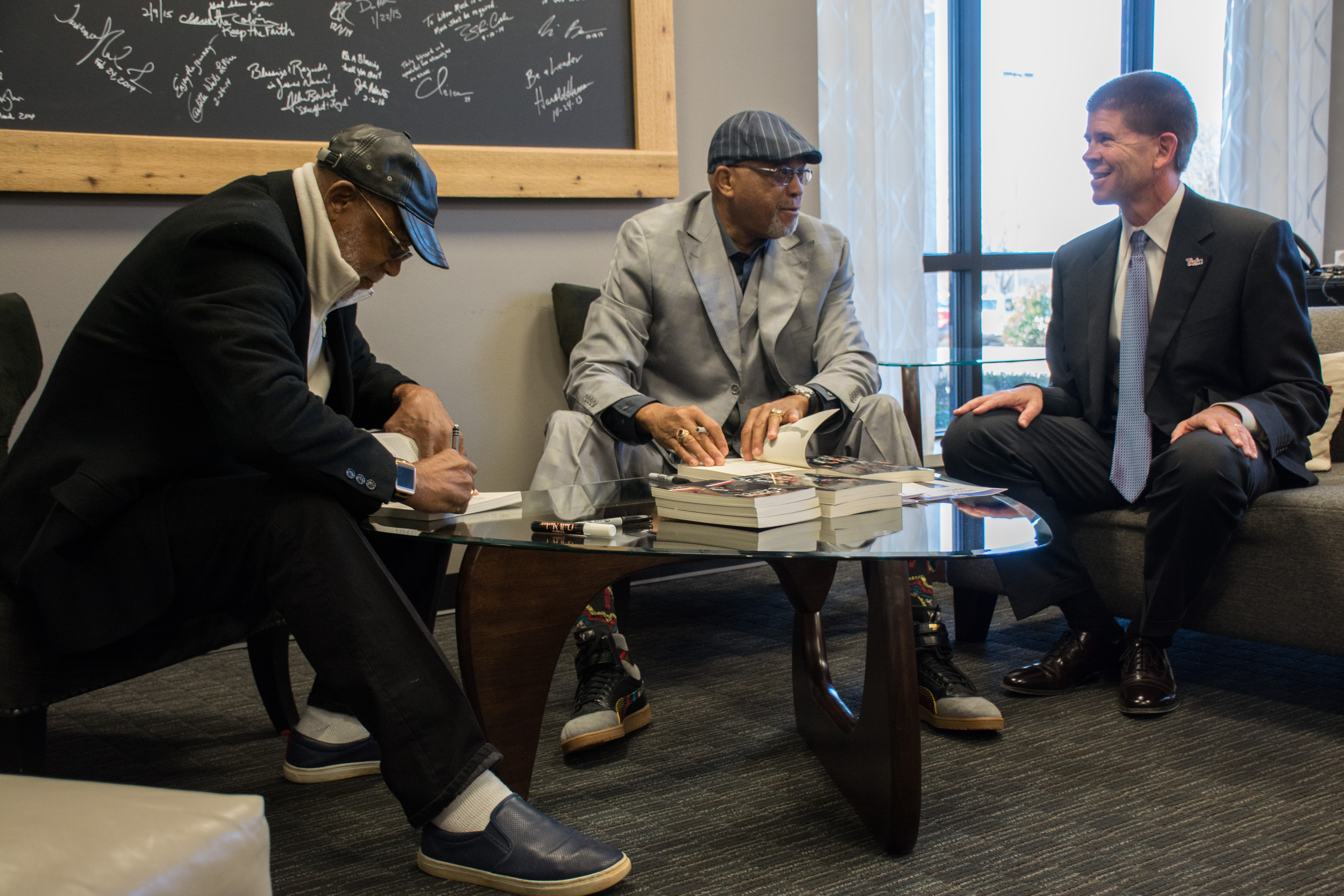

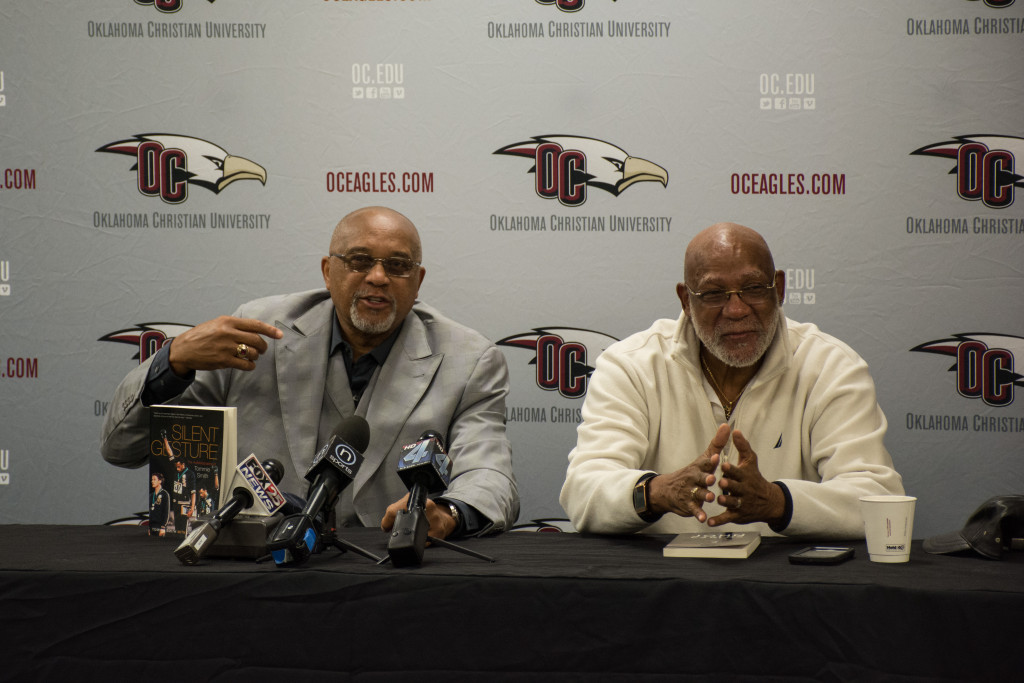
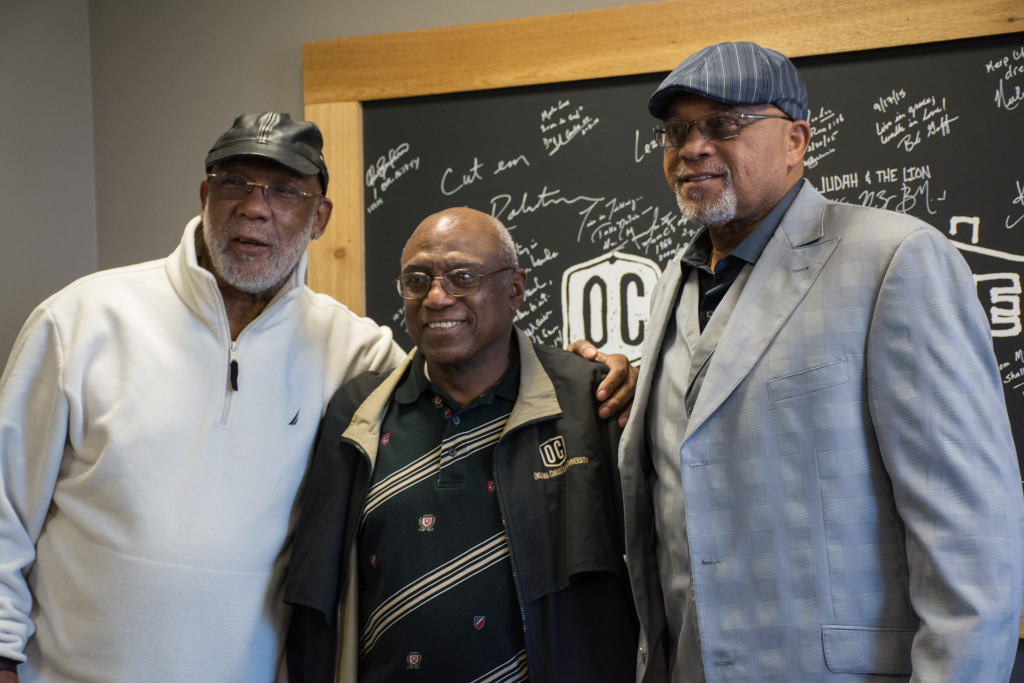
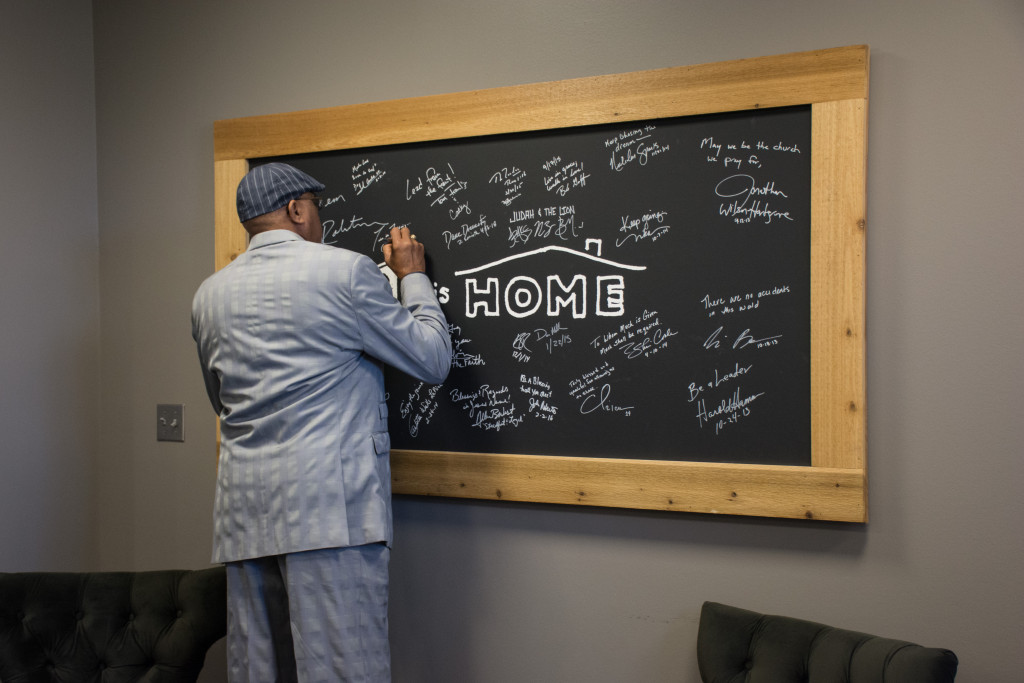
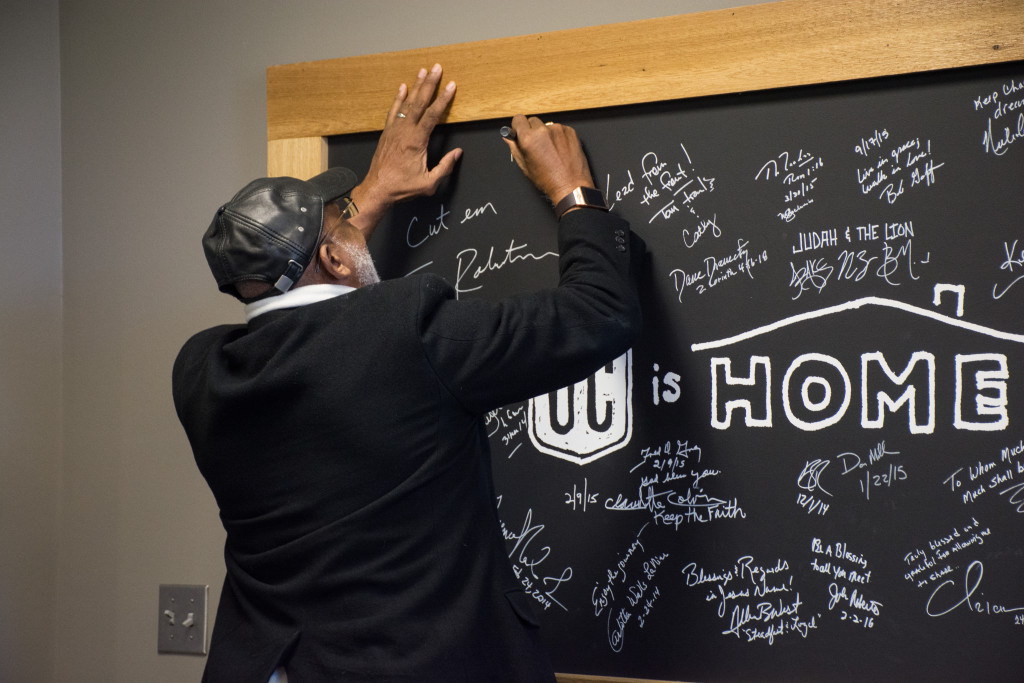
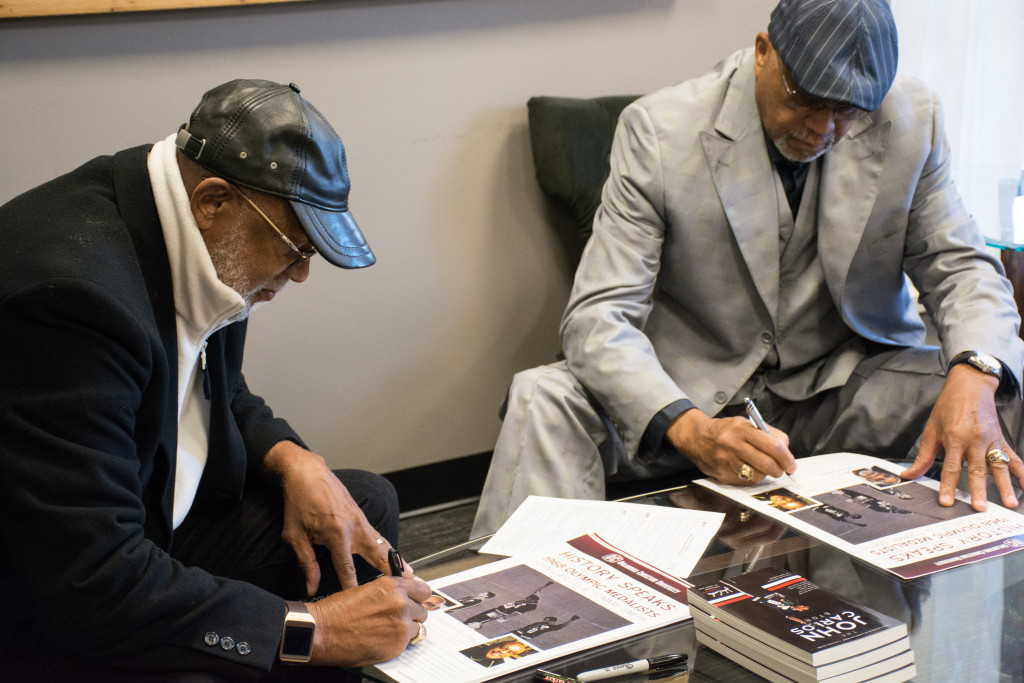










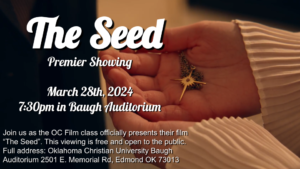







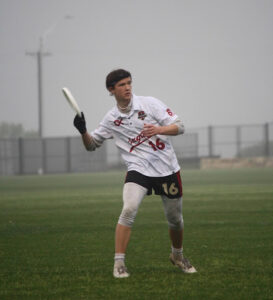
Be First to Comment